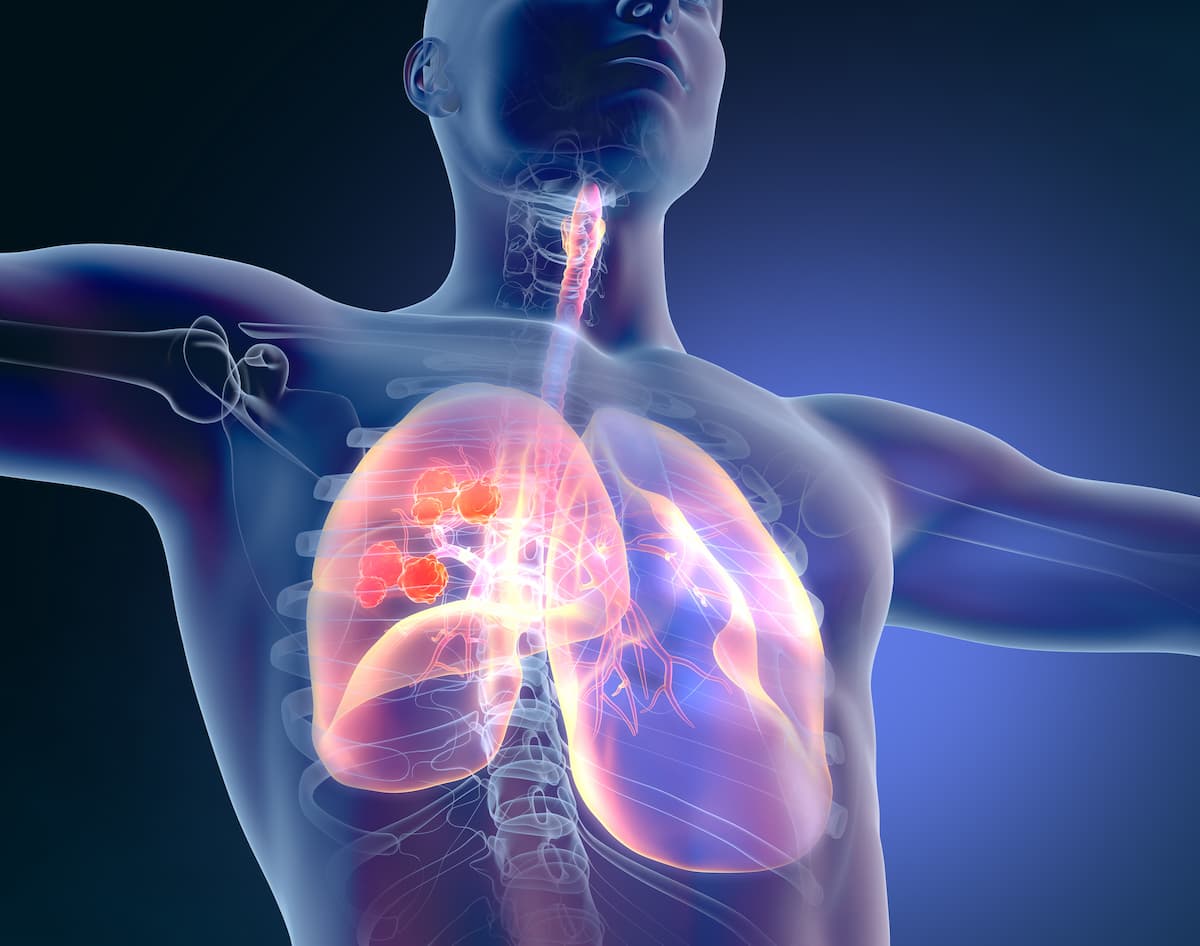FDA Grants Breakthrough Therapy Designation to GSK’227 in ES-SCLC
Supporting data for the designation comes from the ARTEMIS-001 trial evaluating preliminary safety and antitumor activity of GSK’227 in solid tumors.
Supporting data for the designation comes from the ARTEMIS-001 trial evaluating preliminary safety and antitumor activity of GSK’227 in solid tumors.

The FDA has granted the B7-H3–targeted antibody drug conjugate (ADC) GSK5764227 (GSK’227, HS-20093) breakthrough therapy designation as a treatment for patients with extensive-stage small cell lung cancer (ES-SCLC), according to a news release from the drug’s developer, GSK.1
The FDA’s decision is supported by data published on the phase 1 ARTEMIS-001 trial (NCT05276609) evaluating preliminary safety and antitumor activity of GSK’227 in patients with relapsed ES-SCLC. Results from the trial were presented at 2024 American Society of Clinical Oncology (ASCO) Annual Meeting.
Data showed tumor shrinkage occurring in 96.2% (n = 50/52) of patients with evaluable targeted lesions.2 Additionally, tumor shrinkage of 50% or more, or deep responses, occurred in 44.2% of patients. Median overall survival (OS) was not reached, and responses were reported regardless of B7-H3 expression.
“[ES-SCLC] is aggressive with poor prognosis and significant need for new treatments,” Hesham Abdullah, senior vice president and global head of Oncology Research and Development at GSK, said in the news release.1 “Today’s breakthrough therapy designation supports our ambition to accelerate GSK’227 for these patients as part of our broader ADC [program] focused on developing new treatment options with transformational and first-to-market potential.”
Investigators of the trial enrolled 56 patients with ES-SCLC as of the data cutoff date of November 30, 2023. Patients were disaggregated into 2 arms and received at least 1 dose of GSK’227: 31 received 8.0 mg/kg, and 25 received 10.0 mg/kg once every 3 weeks. Before treatment, platinum-based therapy plus etoposide and immunotherapy were administered to 100% (n = 56/56) and 73.2% (n = 41/56) patients, respectively. There were 2 median lines of therapy across cohorts (range, 1-6).
Primary end points include maximum tolerated dose for GSK’227 in phase 1a and objective response rate (ORR) in phase 1b.3 Secondary end points include adverse effects (AEs), maximum plasma concentration and time to reach maximum plasma concentration, terminal half-life, duration of response (DOR), disease control rate (DCR), and progression-free survival (PFS), among others.
At a median follow-up time of 4.8 (95% CI, 3.6-5.6) and 4.9 (95% CI, 4.1-5.6) months, ORR for the 8.0 mg/kg and 10.0 mg/kg arms were 58.1% (95% CI, 39.1%-75.5%) and 57.1% (95% CI, 34.0%-78.2%). DCR was 80.6% (95% CI, 62.5%-92.5%) and 95.2% (95% CI, 76.2%-99.9%). Median DOR and PFS was 4.3 months (95% CI, 3.3-not available [NA]) and 5.6 months (95% CI, 3.4-NA) in the 8.0 mg/kg arm and not reached for either (95% CI, 3.1-NA; 95% CI, 4.4-NA) in the 10.0 mg/kg arm.
Approximate dose-proportional increases in exposure were observed for the pharmacokinetic (PK) profile, with a half-life of 3 to 7 days. Total antibody and ADC PK profiles were similar with low exposure to payload observed.
The safety profile was consistent with previous reports, with the most common grade 3 or greater treatment-related AEs occurring in 10% of more patients including neutropenia, leukopenia, lymphopenia, thrombocytopenia, and anemia.
Inclusion criteria include adult patients with ES-SCLC with histologically or cytologically confirmed locally advanced or metastatic solid tumors not amenable to standard treatment, at least 1 extra-cranial measurable lesion, an ECOG performance status of 0 or 1, and a life expectancy of at least 12 weeks from baseline.
Key exclusion criteria include prior treatment with B7-H3 targeted therapy or a cytotoxic chemotherapy, investigational agent, or anticancer drug within 14 days prior to first dose, or a monoclonal antibody within 28 days prior to first dose, among other treatments.
A phase 3 study comparing efficacy and safety of GSK’227 vs standard-of-care chemotherapy in relapsed SCLC is planned.
References
- GSK receives US FDA Breakthrough Therapy Designation for its B7-H3-targeted antibody-drug conjugate in relapsed or refractory extensive-stage small-cell lung cancer. News release. GSK. August 20, 2024. Accessed August 20, 2024. https://tinyurl.com/4e2yecs7
- Wang J, Duan J, Sun Y, et al. ARTEMIS-001: data from a phase 1a/b study of HS-20093 in patients with relapsed small cell lung cancer (SCLC). J Clin Oncol. 2024;42(suppl 16):8093. doi:10.1200/JCO.2024.42.16_suppl.8093
- ARTEMIS-001: phase 1 Study of the HS-20093 in patients with advanced solid tumors. ClinicalTrials.gov. Updated February 15, 2023. Accessed August 20, 2024. https://www.clinicaltrials.gov/study/NCT05276609